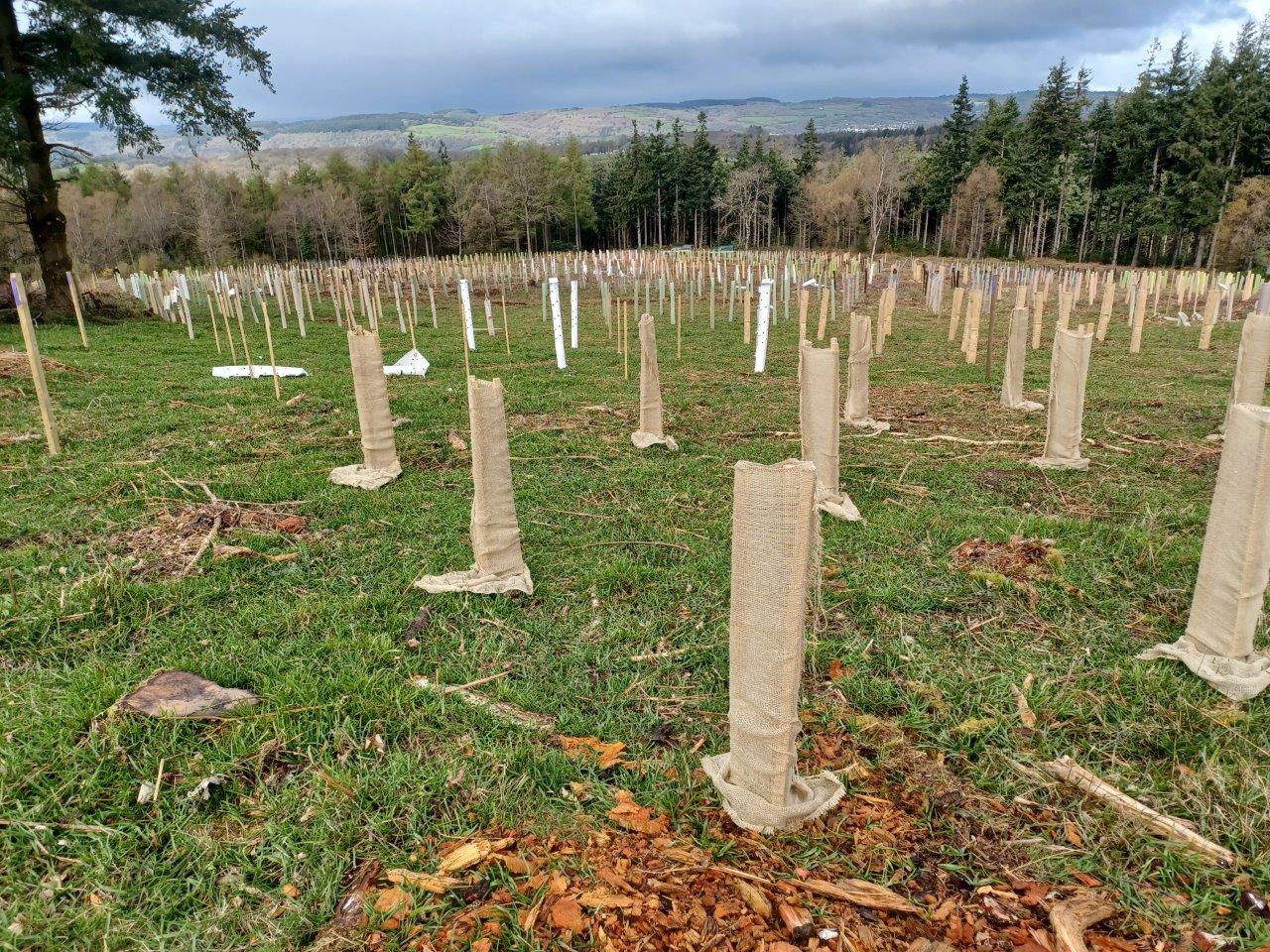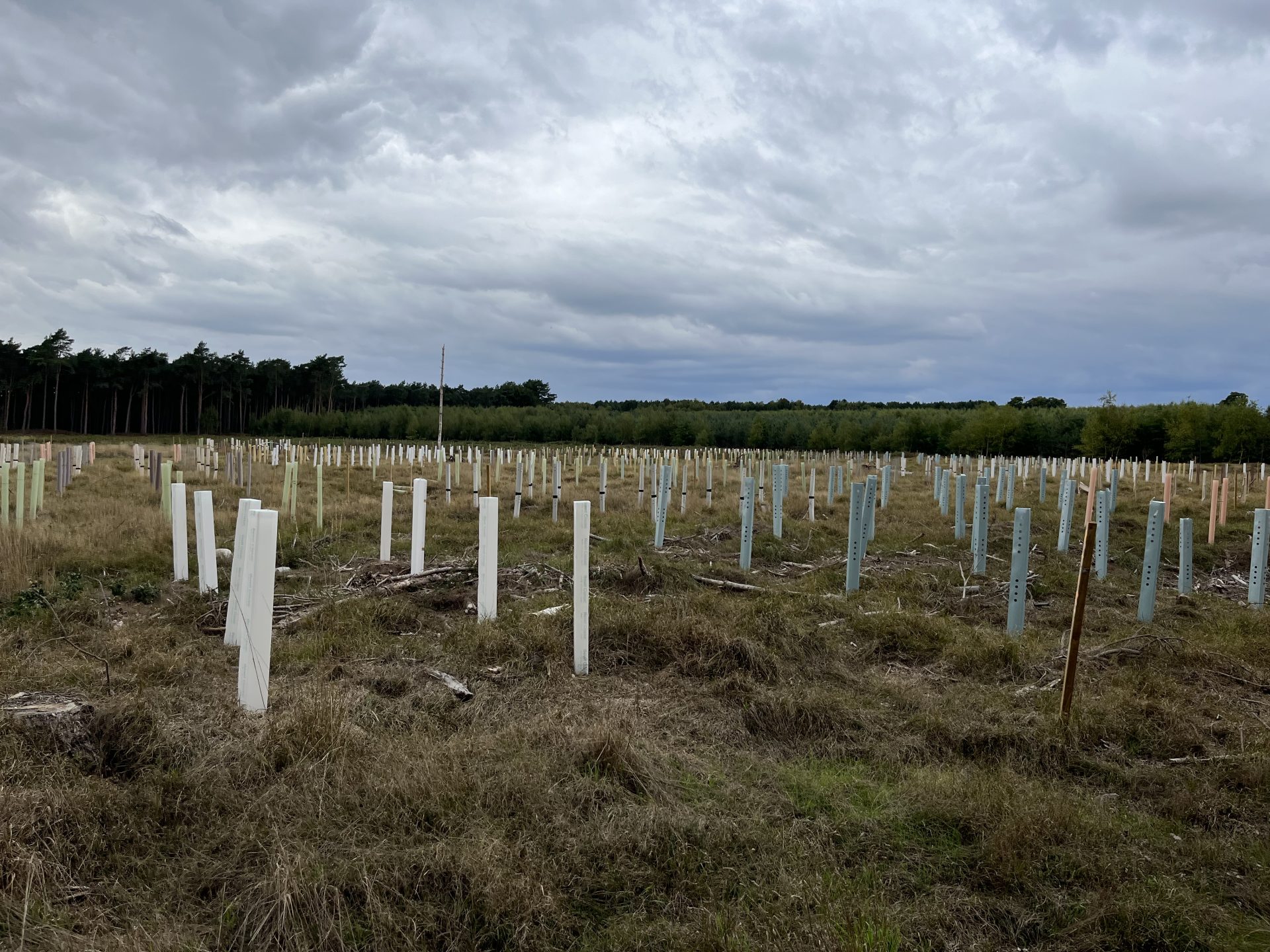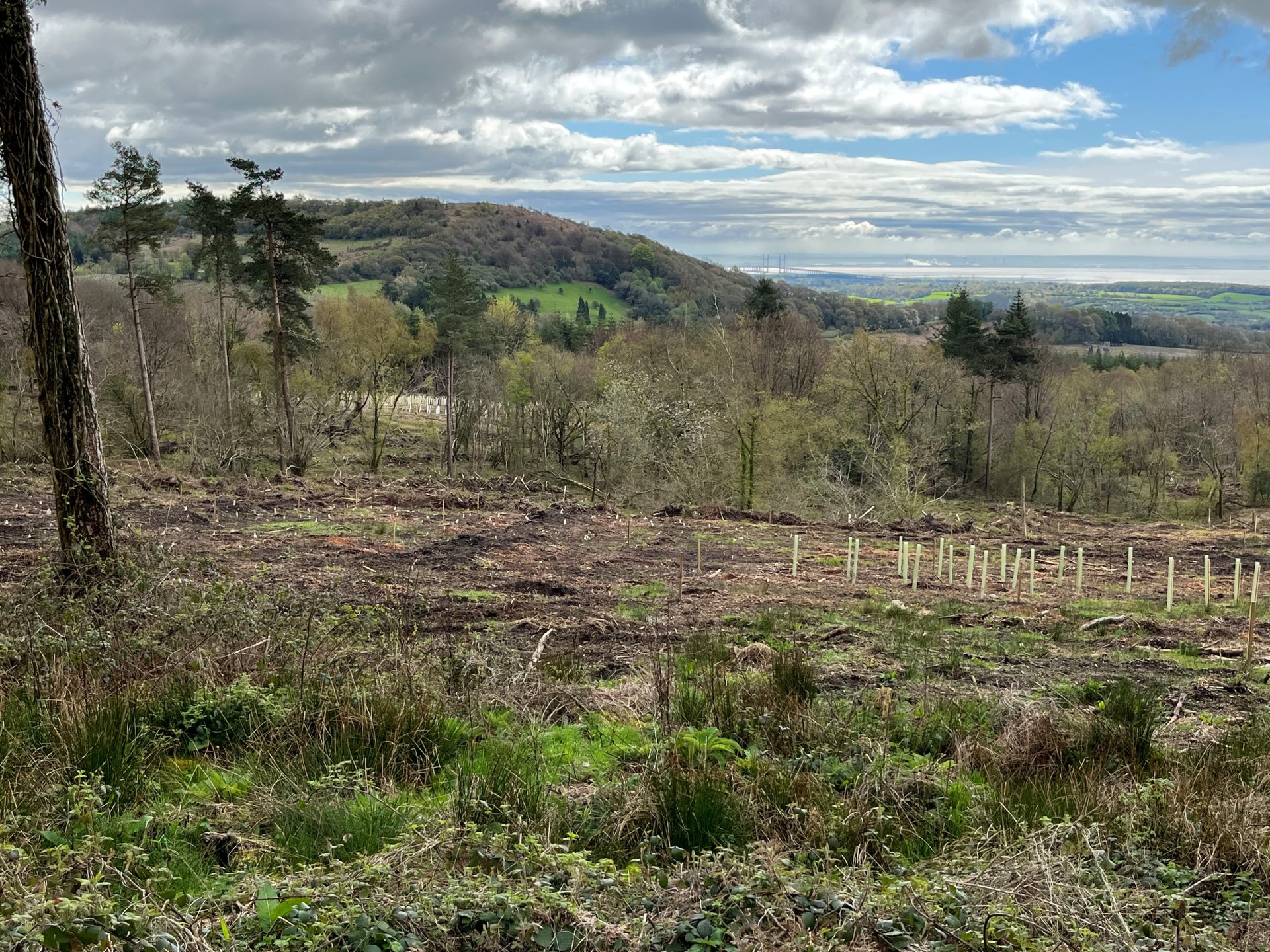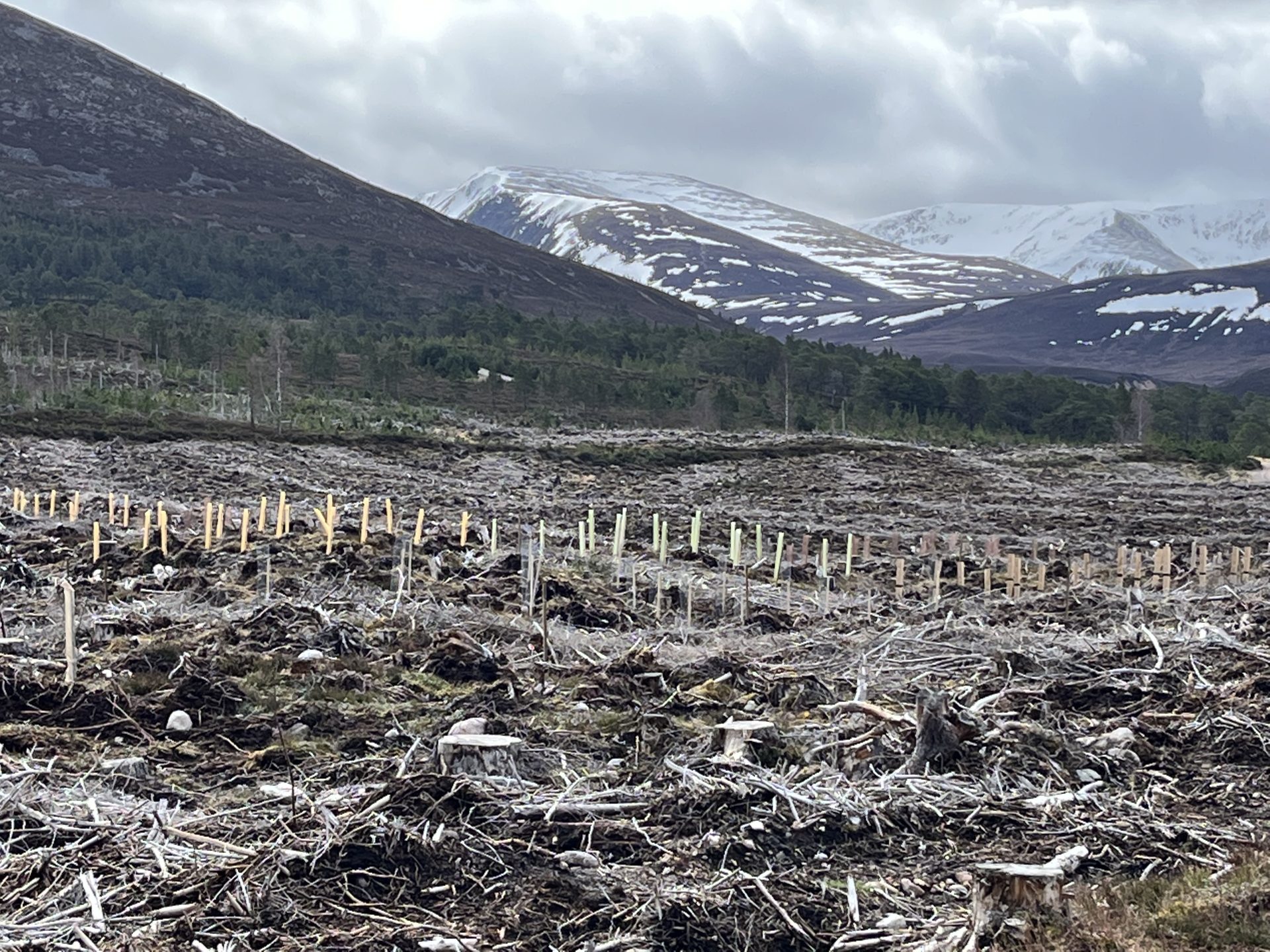Summary
Overview
This research aims to determine the practicality, durability, and efficacy of non-plastic biodegradable tree shelters and other tree protection methods as alternatives to using tree shelters made from conventional plastics. We will be subjecting the products and methods to independent objective scrutiny using robust and statistically valid methods allowing the data we collect to be analysed and placed in the public domain for peer review in a reputable scientific journal.
This project is part of the Nature for Climate Fund.

Research Objectives
Tree shelters were invented by the Forestry Commission in the 1970s and have proven to be a successful innovation, with many tens of millions of units produced and used worldwide, by a variety of different manufacturers.
However, conventional tree shelters can form a source of plastic pollution if they are not collected at the end of their useful life. A number of manufacturers have therefore been striving to develop biodegradable products that could potentially be left on site without a need for them to be removed and recycled. Various claims have been made as to the efficacy and environmental credentials of these products.
We will be carrying out an independent investigation of tree shelters being brought to market as alternatives to those made from conventional plastics.

Work Packages
The research project will consist of three elements:-
1) Field experiments on a range of contrasting forest sites across Britain to determine the practicality, durability, and efficacy of non-plastic biodegradable tree shelters, and other silvicultural approaches.
2) An assessment of likely environmental impact and degradation end points of the alternative products used in the field experiments, based on evidence provided by manufacturers.
3) A time and method study focusing on the costs and practicality of using the different products.

Latest Update
Four experiments have now been fully established, involving the planting of over 15,000 trees over 12 ha. The method study has been completed. The process of obtaining independently verifiable evidence of biodegradability from manufacturers is also completed, although they will be given an opportunity to provide updated information at the point of publication of our results.

Funding & Partners
-
 The Government’s Nature for Climate Fund - DEFRA
The Government’s Nature for Climate Fund - DEFRA - The Science and Innovation Strategy for Forestry in Great Britain
- Coillte
- Forestry Commission
- Forestry England
- Scottish Forestry
- Forestry and Land Scotland
- The Welsh Government
- The National Trust
- The Woodland Trust
- The Scottish Forestry Trust
- The Yorkshire Dales Millennium Trust
- The Yorkshire Dales National Park
